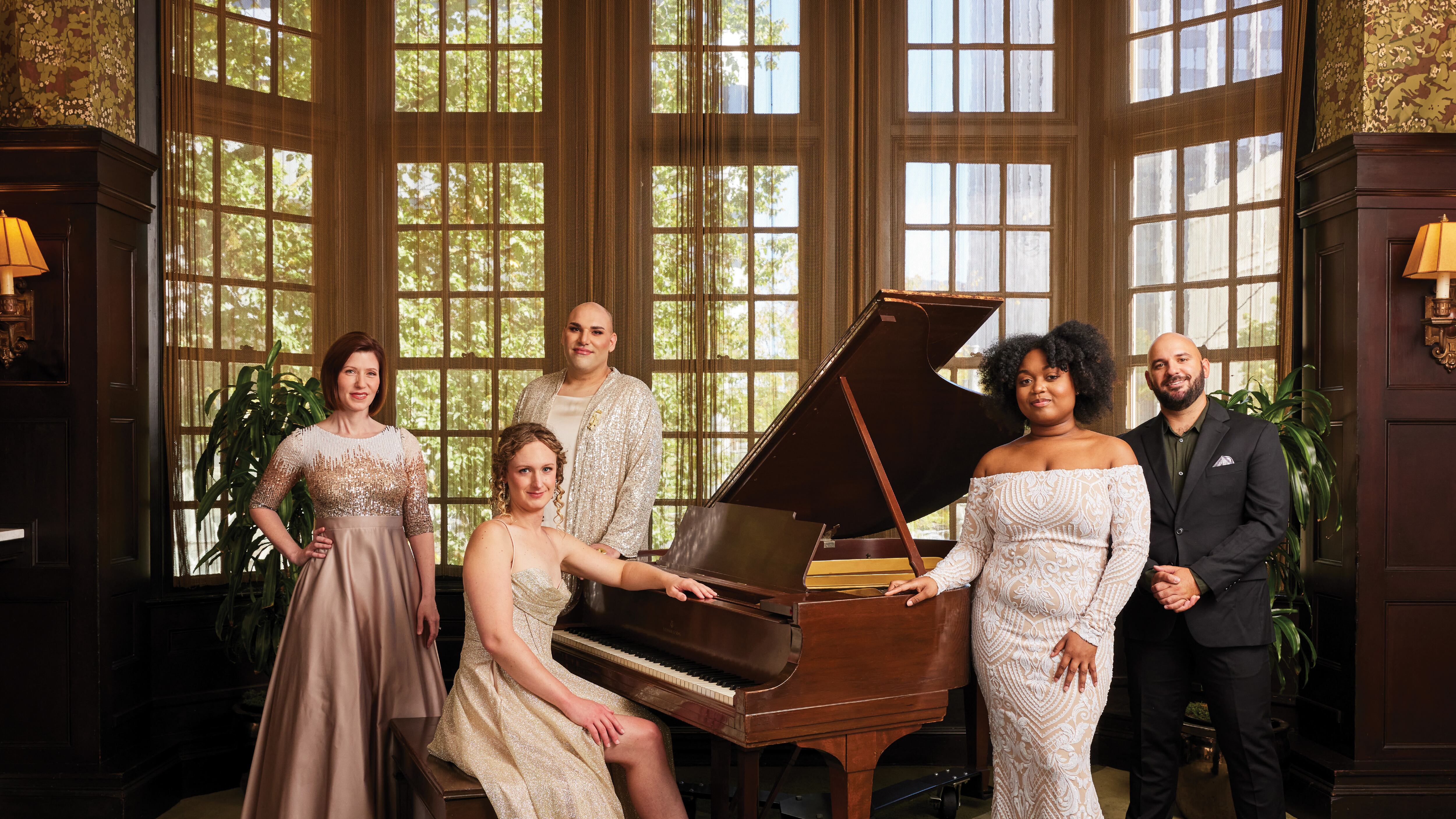The Juliet Letters remains one of the more divisive albums in Elvis Costello’s wide-ranging discography. When it was released in 1993, critics were kind to the sweeping song cycle, written and recorded with string ensemble the Brodsky Quartet, but even Costello’s most ardent fans had a difficult time connecting with the bold merging of classical and pop.
But as with so many ambitious commercial flops, the tide is starting to turn in favor of The Juliet Letters, thanks in no small part to the classical music community’s embrace of the work.
“The poetry in this is as good as many of the standard classical poems that we set to music,” says Fenlon Lamb, director of a live presentation of The Juliet Letters to be performed by Portland Opera this month. “The musical underpinning might be a little more pop-related, but he did this with a string quartet that is classical at its root. I think it’s the best of both worlds.”
Lamb first brought The Juliet Letters to the stage around eight years ago at the behest of Lyric Opera of Kansas City, an ambitious theater company that regularly commissions fresh work from new composers and directors. Working from Costello’s rich lyrical text, which envisions a series of dispatches written to Shakespeare’s doomed heroine Juliet Capulet, the director rearranged the songs as a series of vignettes that play with operatic archetypes.
“Our baritone is very much a father figure,” Lamb says. “There is a song that’s very villainesque. I’ve given our tenor all the very, very sad, vulnerable pieces. Then the mezzo, I went into the witches, bitches and boys because that’s what mezzos play. For our soprano, I envisioned children and ingenues and the harrowed heroine. Somebody who is constantly going through it.”
Costello’s lyrics display a broad array of tones, from the devastating “Why?,” which addresses divorce from the perspective of a young child (“If you both love me so/Why don’t you love each other?”), to “This Offer Is Unrepeatable,” a playfully caustic sales pitch from the devil itself. Even within the individual vignettes, it allows the singers—all of whom are Portland Opera’s artists-in-residence for the 2024–25 season—to display an equally wide spectrum of skills in their interpretation of the work.
“The most important thing is the text and getting that across,” says Erin Roth Thomas, the Texas mezzo-soprano who is part of The Juliet Letters cast. “There’s some parts that are really funny and biting, so you’re not going to sing the most operatic sound. You’re going to put a bit of an edge on your voice to get that humor across. There are other parts that are more about the music because it’s just a beautiful melody line. That’s actually kind of liberating because you can play with the different colors and textures in your voice, all within this one hourlong show that we’re doing.”
The brilliance of The Juliet Letters, and one core reason it is finding new resonance among modern listeners, is how timeless the work feels. While there are references to more modern figures like Liberace and Laurel and Hardy wrapped up within the framework of a group of writers trying to connect with a character from a 16th century play, the emotions of Costello’s words are applicable to any time or place. For example, when the troupe rehearsed in the days following the recent presidential election, nearly everyone was in tears following the performance of “The Birds Will Still Be Singing,” the stunning end-of-life ballad that closes out The Juliet Letters.
“It might be my favorite because it encapsulates the whole story,” Lamb says. “We’ve gone through all of these little vignettes, these characters and different letters, and then we realized all of that could be the last moment that you experience. It was very poignant today.”
SEE IT: Portland Opera’s The Juliet Letters at Artists Repertory Theatre, 1515 SW Morrison St., 503-241-1407, portlandopera.org. 7:30 pm Friday–Saturday, 2 pm Sunday, Nov. 15–24. $60.
